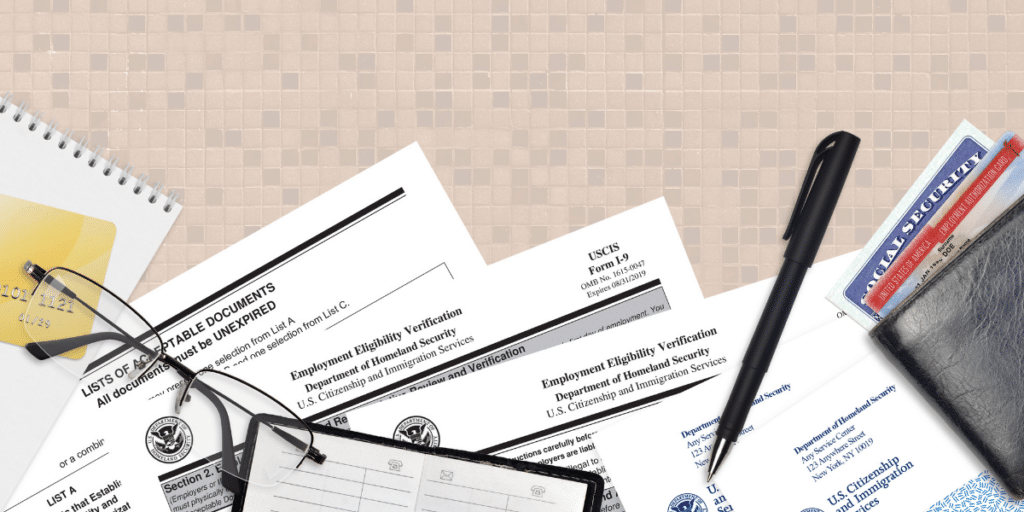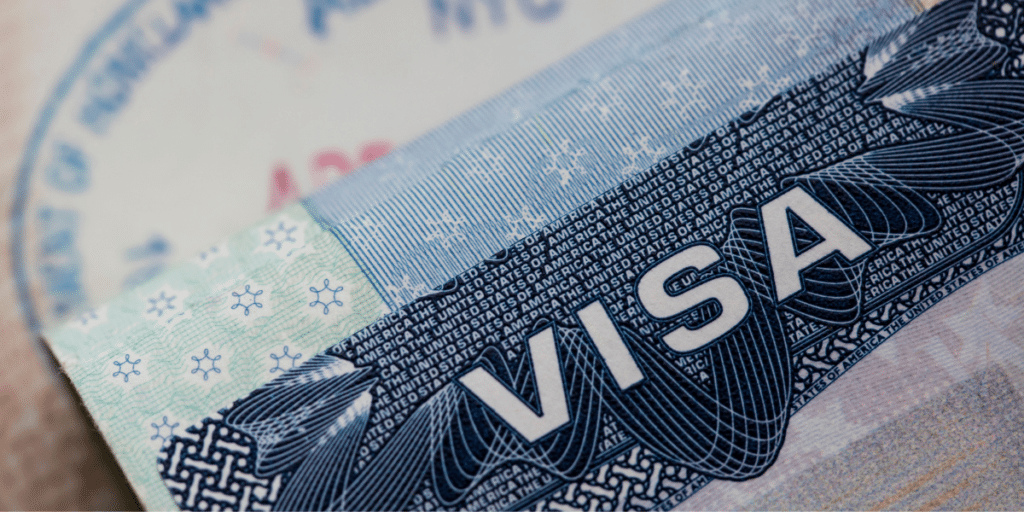Most of us don’t think much about our driver’s licenses—until we realize they might not be enough to get on a plane or into certain government facilities. With the REAL ID deadline approaching in May 2025, now’s the perfect time to check whether you’re prepared. We’re here to demystify the process and help you set yourself up for success.
What is the REAL ID?
The REAL ID is a more secure version of your driver’s license or state ID, designed to meet federal standards for safety and fraud prevention in high-security areas such as airports and federal facilities.
If you live in North Carolina, checking whether you already have a REAL ID is quick and easy. Take a look at your license or identification card—if you spot a gold star in the upper-right corner, you’re all set. If not, it might be time to think about upgrading.
Why Do You Need a REAL ID?
Starting May 2025, you’ll need a REAL ID (or another federally accepted form of ID) for a few important things. Here’s what you should know:
Flying Within the U.S.
Planned a vacation or business trip? Starting May 7, 2025, you’ll need a REAL ID or another federally approved form of identification, like a passport, to board domestic flights.
If you don’t have an acceptable ID, you may still be able to board after going through an identity verification process with the TSA—but it’s much easier to bring the right ID and skip the hassle.
Accessing Federal Facilities
Certain secure locations, like military bases or federal offices, will require a REAL ID to gain entry. This includes:
- Nuclear Sites
- Military Bases
- Federal Courthouses
- Federal Prisons
- Other Federal Offices (like a Social Security office)
If you get to the door without the right ID, you might be turned away unless you have an alternative like your passport.
Can I Vote Without a REAL ID?
North Carolina requires a photo ID to cast your ballot. However, the REAL ID is not mandatory to vote. A standard North Carolina driver’s license, NC REAL ID Identification Card, or any other accepted photo identification will work. If you’re unsure, check with local election officials to confirm your ID meets state requirements.
Do I Need a REAL ID to Serve for Jury Duty?
A REAL ID won’t be necessary for jury duty in North Carolina. If you’ve been summoned to serve on a jury, your standard driver’s license or state-issued ID will work just fine. No need to worry about updating your identification for this scenario.
REAL ID for Non-Drivers
Don’t have a driver’s license? No problem! You can still get a REAL ID with the NC REAL ID Identification Card. It works just like a driver’s license for flying within the U.S. or getting into federal facilities that need a federally compliant ID. The application process is the same, so non-drivers can follow the same steps and stay ready for the changes.
What If You Don’t Have a REAL ID Yet?
No REAL ID and need to enter a federal facility after May 2025? Don’t panic—there are other options available.
You can use another form of federally-approved identification, such as:
- A valid U.S. passport
- A passport card
- A Department of Defense ID (for military personnel or their dependents)
Make sure you carry one of these with you if you know you’ll be visiting a restricted federal location and haven’t yet updated to a REAL ID. Having a backup plan can save you time and trouble.
How to Get a REAL ID in North Carolina
If you need to upgrade to a REAL ID, the process isn’t as complicated as you might think. All it takes is some preparation.
However, it’s important to note that you cannot obtain your first REAL ID by simply renewing your license online. To get a REAL ID for the first time, you must visit a North Carolina DMV office in person with the required documents.
Here’s how to get started:
Schedule an Appointment
Find your local North Carolina DMV office and book a time to go in. Walk-ins are allowed, but appointments can save you time spent waiting.
Gather Your Documents
To complete your REAL ID application, you’ll need:
- Proof of Identity: A valid U.S. passport, a certified birth certificate, or a permanent resident card.
- Proof of Your Social Security Number: Bring your Social Security card, a W-2 form, or another official document that includes your name and SSN.
- Two Documents with Proof of North Carolina Residency: This could be any document issued by the state of North Carolina, a utility bill, rental agreement, or bank statement with your address.
- (For Drivers Licenses Only) Proof of Liability Insurance Coverage: Bring your current insurance policy or a statement from your insurer.
- (For Non-U.S. Citizens Only) Proof of Legal Presence: This could be a green card, employment authorization document (EAD), or an approved form I-797.
Tip: The North Carolina DMV’s website has a handy checklist to make sure you’re fully prepared. Try the REAL ID Document Wizard if you want to make sure you have everything you need.
Complete Your Application
When you visit the DMV, provide your documents and verify that your details are correct. Once approved, your REAL ID will be sent to you in the mail.
Don’t Wait Until the Last Minute
May might feel far away, but time has a habit of sneaking up on us. DMV offices are likely to get busier as the deadline approaches, so it’s best to knock this off your to-do list sooner rather than later. Take a peek at your license—if you don’t see that gold star in the top corner and need a federally approved ID, it’s time to schedule your appointment.
We’re Here to Help
At Dozier Miller Law Group, we understand how quickly life’s ever-growing to-do list—like renewing your ID—can become overwhelming. And if legal challenges arise that need more attention, we’re here to help guide you through them with care and clarity. From family law to business law and beyond, we’re dedicated to providing the support you need.
Looking for guidance? Reach out to Dozier Miller Law Group today. Whatever your legal situation, we’re ready to help you move forward with confidence. Contact us now to get started!

CATEGORIES
Contact an Attorney
Our attorney offer specialized guidance and representation in a variety of practice areas.

REMEMBER: Always speak with your own attorney
This information is provided for informational purposes only; it is not offered as and does not constitute legal advice.
More Insights and Resources
Learn more about what to expect when facing a family law dispute in Charlotte, North Carolina from Family Law attorneys at Dozier Miller Law Group
Protect What Matters Most: Estate Planning for Every Stage of Life
Thinking about the future doesn’t always come naturally. Many of us get caught up in the day-to-day,…
Will a Separation Protect Me Financially?
Separation is never easy, especially when financial questions start piling up. Can you protect your savings? Will…
Practical Custody Arrangements for Families
Trying to figure out custody arrangements? You’ve probably come across terms like joint custody, primary custody, and…
Future-Proof Your Business Against Form I-9 Changes
Running a business is no small feat. Between managing your team, keeping customers happy, and planning for…
When Do You Need an Attorney for a Breach of Contract Case?
Contracts are the backbone of any good business relationship. They bring clarity, set expectations, and hold everyone…
Navigating Immigration Changes and Their Impact on Employment Law
No matter the size of your business, immigration law affects your ability to hire and retain the…
LGBTQ Families and Stepparent Adoption: What You Need to Know in North Carolina
As a family law attorney in North Carolina, I’ve seen many parents assume that their legal status…
What to Do When You Get a Bad Google Review
If you’re a Charlotte business owner, you know just how important your online reputation is. Around 98%…
Managing Your Immigration Status in 2025
The 2024 election brought significant shifts to U.S. immigration policy, many of which have already begun reshaping…
Plan Now for Summer Child Custody Arrangements
It might not feel like it, but summer break will be here before you know it. For…










